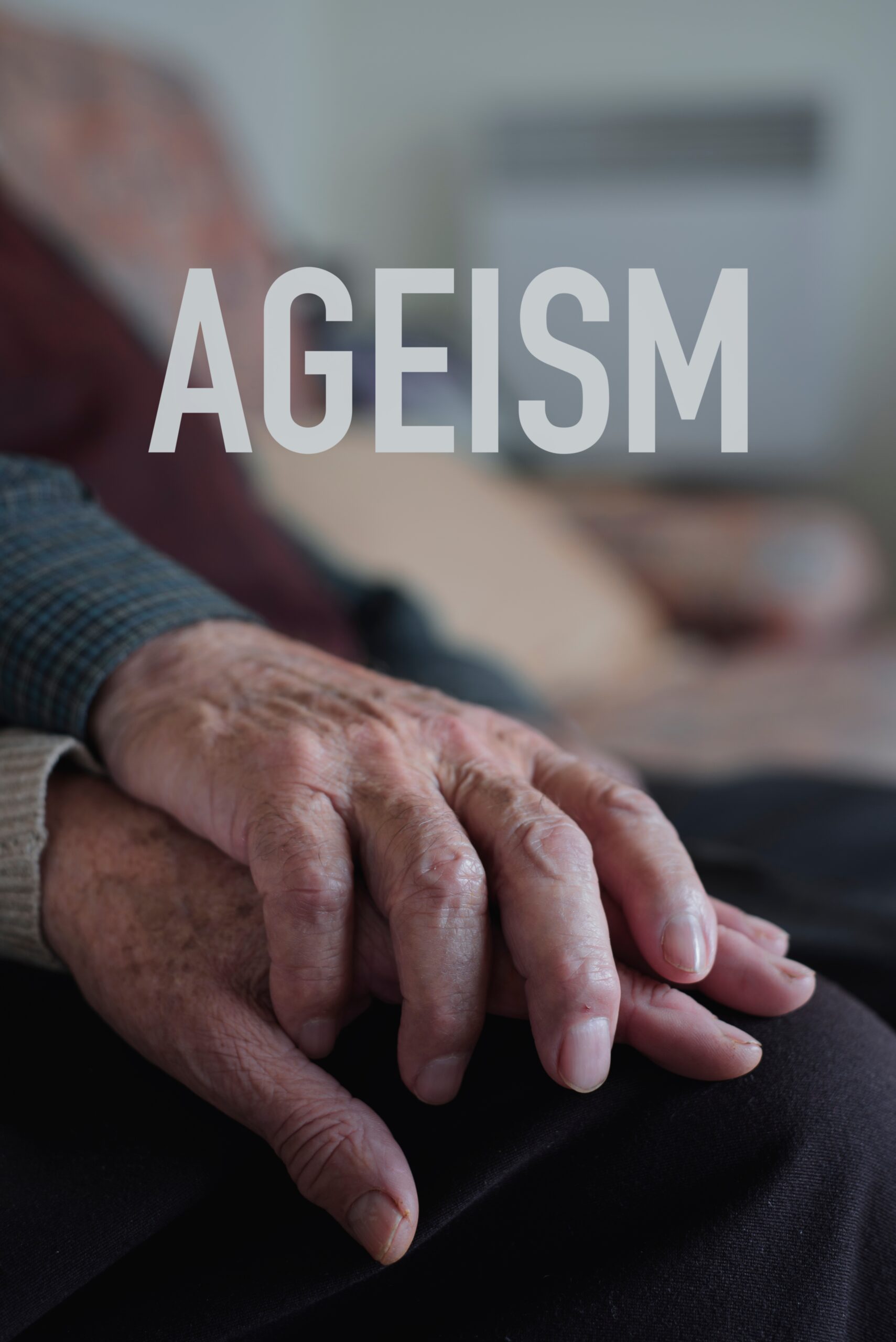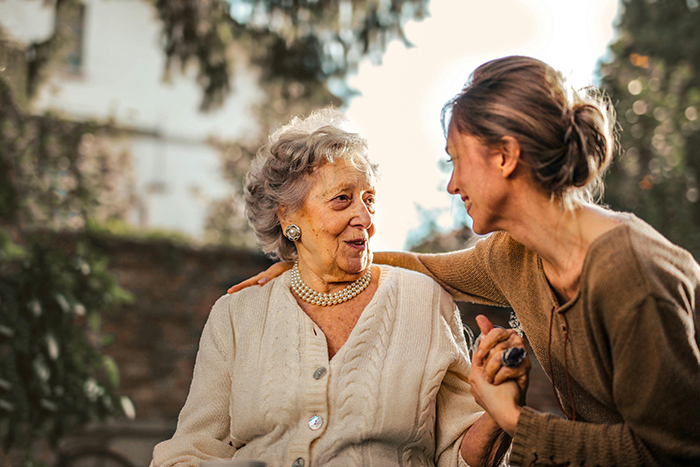What are my rights?
Elder abuse is a human rights issue. Human rights are basic rights and freedoms to which all humans are entitled.
At the very core of abuse are fundamental loss of respect and deprivation of basic human rights as set out in the Universal Declaration of Human Rights in 1948, consequent international treaties and national human rights acts.1
Article I of the Declaration states in part that: All human beings are born free and equal in dignity and rights. This does not change with age.2
Older adults have the same rights as people younger than themselves.


Ageism
Ageism—stereotyping or discriminating against people based on their age — is widespread and the most tolerated form of social prejudice in Canada… 3
There are many erroneous beliefs in our society – e.g., that older adults’ lives are less valuable and older adults are less deserving of having their rights respected.4
Ageism, like racism and sexism, is a form of discrimination. The Canadian Charter of Rights and Freedoms states that it is illegal for a person to be discriminated against because of age.5
Ageist assumptions can result in lack of respect for an older adult’s personal values, priorities, goals, lifestyle choices, and inherent dignity as a human being. 6
Contrary to commonly held beliefs, most older adults who experience abuse or neglect are mentally competent, are not dependent on other people, and do not require constant care. 7
Rights-Based Response
In rights-based approaches, adults are entitled to make decisions based on their own needs and values…upholding the importance of their rights.8
em>As Spencer (2005) explains, up to one-third of abused or neglected older adults decline the help that is offered to them by agencies, often due to the guilt or shame associated with the abuse, but also because the assistance offered does not reflect their self-identified needs.9
“Staying in control of one’s life” is a key priority for older people, coupled with dignity, choice, autonomy, and the opportunity to lead an ordinary life. However, the right to autonomy and self-determination can sometimes be overridden by other people’s concerns, fears, and priorities. 10

From the Canadian Centre for Elder Law:
The following principles are meant to help professionals and volunteers understand and effectively respond to the rights of older adults who are abused, neglected, or at risk:
- Talk to the older adult
Ask questions. Talk to the older person about his or her experience. Help the person to identify resources that could be helpful. - Respect personal values
Respect the personal values, priorities, goals, and lifestyle choices of an older adult. Identify support networks and solutions that suit the older adult’s individuality - Recognize the right to make decisions
Mentally capable older adults have the right to make decisions, including choices others might consider risky or unwise. - Seek consent or permission
In most situations, you should get consent from an older adult before taking action. - Respect confidentiality and privacy rights
Get consent before sharing another person’s private information, including confidential personal or health information. - Avoid ageism
Prevent ageist assumptions or discriminatory thinking based on age from affecting your judgment. Avoid stereotypes about older people and show respect for the inherent dignity of all human beings, regardless of age. - Recognize the value of independence and autonomy
Where this is consistent with the adult’s wishes, assist the adult to identify the least intrusive way to access support or assistance. - Know that abuse and neglect can happen anywhere and by anyone
Abuse and neglect of older adults can occur in a variety of circumstances from home care to family violence. - Respect rights
An appropriate response to abuse, neglect, or risk of abuse or neglect should respect the legal rights of the older adult, while addressing the need for support, assistance, or protection in practical ways. - Get informed
Ignorance of the law is not an excuse for inaction when someone’s safety is at stake. If you work with older adults, you need to educate yourself about elder abuse. 11
Elder Abuse and the Law
Many forms of elder abuse are offences under Canada’s Criminal Code. There are also sentencing provisions that take into account whether the person convicted was in a position of trust or power over the victim, and whether the victim’s age was a motivating factor in the crime(Criminal Code section 718.2, 1995).12
Evidence that an offence had a significant impact on victims due to their age and other personal circumstances such as their health or financial situation – is also considered an aggravating factor for sentencing purposes (Amendment to Section 718.2, January 13, 2013). 13 For further details, see page 29 in the Community Protocol Guidelines.

- Levin, S. P. (2008). Discussing screening for elder abuse at primary health-care level. World Health Organization. Executive Summary, p. 10. Online : http://www.who.int/ageing/publications/Discussing_Elder_Abuseweb.pdf↩
- The Universal Declaration of Human Rights. Article 1. Online: www.un.org/en/universal-declaration-human-rights/index.html↩
- Revera Inc. and the International Federation on Ageing. November 2012. Revera Report on Ageism. Online http://www.reveraliving.com/revera/files/b2/b20be7d4-4d3b-4442-9597-28473f13b061.pdf↩
- Canadian Network for the Prevention of Elder Abuse. 2004. How Do We Get Past Ageism? Online: http://www.nbanh.com/files/How%20Do%20We%20Get%20Past%20Ageism_handout%281%29.pdf↩
- The Constitution Act, 1982, being Schedule B to the Canada Act 1982 (U.K.), 1982, c. 11. Online: https://www.canlii.org/en/ca/laws/stat/schedule-b-to-the-canada-act-1982-uk-1982-c-11/latest/schedule-b-to-the-canada-act-1982-uk-1982-c-11.html↩
- Canadian Centre for Elder Law, a division of the British Columbia Law Institute, (2011). A Practical Guide to Elder Abuse and Neglect Law in Canada, p 10. Online http://www.bcli.org/sites/default/files/Practical_Guide_English_Rev_JULY_2011.pdf↩
- Bain, P., Spencer, C. (updated 2009). World Elder Abuse Awareness Day Fact Sheet 2, What is Abuse of Older Adults? prepared for Federal/Provincial/Territorial Ministers Responsible for Seniors in Canada. Online: http://www.gov.pe.ca/photos/original/senior_weaad.pdf↩
- Podnieks, E. (2008). “Elder Abuse: The Canadian Experience.” Journal of Elder Abuse & Neglect, 20(2): 126-150↩
- MacRae, L., Pearson, S. (September 2010). Civil Investigation and Abuse of Vulnerable Adults in Calgary: An Exploratory Study. Submitted to: Action Group on Elder Abuse, Submitted by: Canadian Research Institute for Law and the Family. Online: http://www.crilf.ca/Documents/Investigating%20Abuse%20of%20Vulnerable%20Adults%20-%20Sep%202010.pdf↩
- Division staff, Nuffield Institute for Health, Oxford, Centre on Population Ageing, University of Oxford, Time to decide: a seminar at the Oxford Centre on Population Ageing, 21 September 1999. Published 2000 by Help the Aged, London, England↩
- Canadian Centre for Elder Law. A Practical Guide to Elder Abuse and Neglect Law in Canada. (Revised edition 2011) p 5. Online: http://www.bcli.org/sites/default/files/Practical_Guide_English_Rev_JULY_2011.pdf↩
- Criminal Code, R.S.C., 1985, c. C-46. Online: http://http://laws-lois.justice.gc.ca/eng/acts/c-46/page-180.html#docCont↩
- Government of Canada, Department of Justice. News Releases. (January 2013). Legislation Protecting Canada’s Seniors Comes Into Force. Online: http://www.marketwired.com/press-release/legislation-protecting-canadas-seniors-comes-into-force-1745453.htm